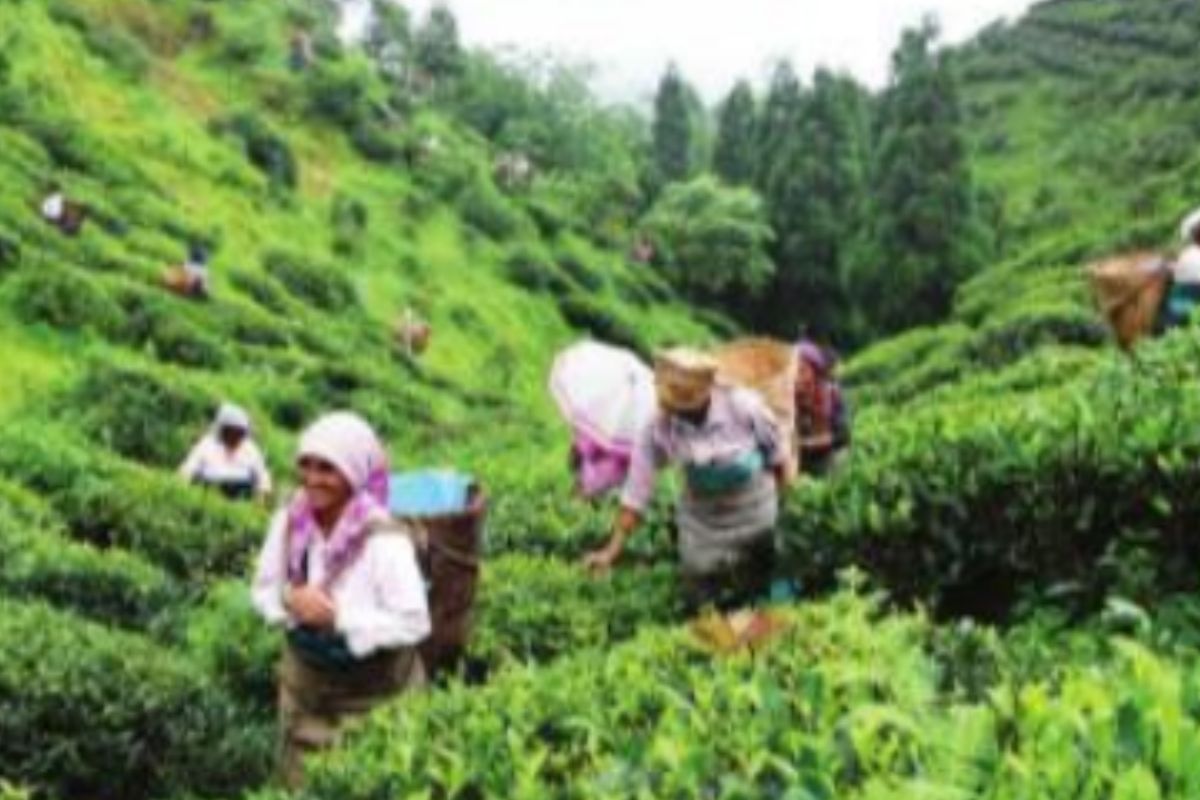Govt allots Y-category security to Birbhum leader Kajal Sheikh
In a significant move, the state government is providing Y-category security to Kajal Sheikh, the sabhadhipati of Birbhum zilla parishad.
In a Press note, the ITA has said: “This will further aggravate the financial stress of tea producers and make tea estate operations unviable.”

(SNS)
Though the Indian Tea Association (ITA) said it was deeply concerned about newspaper reports on the possibilities of the Government of West Bengal further increasing the daily wages of tea workers, the state government has finally increased it from Rs 232 to Rs 250 a day with effect from 1 June 2023 by issuing an advisory today.
In a Press note, the ITA has said: “This will further aggravate the financial stress of tea producers and make tea estate operations unviable.”
ITA officials have also said that the new tea season in 2023 has not begun on a bright note for the tea industry in North Bengal due to unfavorable weather conditions adversely impacting crop in several tea growing pockets in the Dooars and Darjeeling.
Advertisement
“Reports of widespread hail damage to second flush crop have been received across many gardens in North Bengal. Although the official Tea Board data is awaited for March 2023, as per available ITA membership crop data, Darjeeling crop is estimated to be down by 39 percent in March. Crop decline has also been reported in several pockets in the Dooars region,” Secretary General of the ITA Arijit Raha said.
“The West Bengal tea Industry, and particularly the Darjeeling tea industry, has been going through a period of acute financial crisis over the last few years, with tea prices not able to keep pace with the rising cost of production,” he added.
“West Bengal tea prices since 2014 have grown at a CAGR (Compound Annual Growth Rate) of around 4 percent only, while costs of vital inputs like coal, gas, MOP, sulphur and other items have grown at a CAGR of 9 percent to 12 percent during the same period. Auction prices of Darjeeling tea have been more depressed than the overall West Bengal average price – recording a CAGR of only 1.86 percent since 2014. Given the fact that the cost of production in Darjeeling hills is significantly higher compared to the plains, a majority of Darjeeling tea estates are finding it difficult to sustain operations,” Mr Raha said.
According to ITA officials, any further wage increase is not justified because of several reasons.
Wages of tea plantation workers have increased from 1 April 2014 from Rs 95 to Rs 232 a day, which is an increase of 144.21 percent. In addition to cash wages, workers are being provided in-kind benefits which are inflation indexed.
ITA officials also pointed out that the industry has proposed to the Union Ministry of Commerce for declaration of a floor price of green leaf (payable to small tea growers) and made tea payable to tea growers) indexed to cost of production. Given the fact that the Indian Tea Market left to itself has not been able to address the low price cycle, introduction of a floor price would be an immediate solution to address the unremunerative price of tea without any additional cost to the Government, they said.
Advertisement